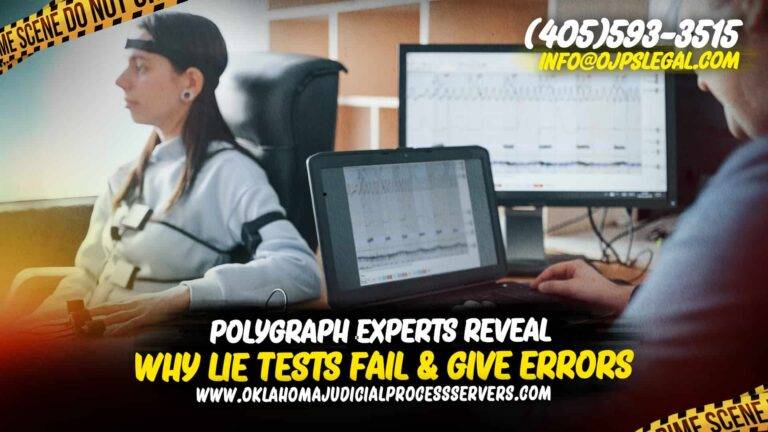Introduction
Polygraph examinations, also known as lie detector tests, aim to determine whether an individual is being deceptive. This is done by measuring physiological indicators of stress. However, the validity and reliability of these tests have been extensively debated. It is important to understand how different human and technical factors can influence the accuracy of polygraph results.
Physiological Responses are Not Definitive
Polygraph examinations are based on the premise that deceit triggers autonomic reactions such as changes in respiration, pulse rate, and skin conductivity. However, such responses can also be triggered by stress, anxiety, or even certain ailments and diseases.
Countermeasures
Those taking the test might try to beat the polygraph. They can do this by controlling their breathing, clenching muscles, or mentally repeating their answers to stay calm. These tactics can sometimes prevent the physiological changes that the polygraph measures, leading to false negatives where lies go undetected. However, trained examiners are often aware of these methods and look for signs of them during the test.
Examiner Skill and Bias
The quality of the examiner is perhaps the most important aspect, but this aspect is not uniform. This is because the examiners are humans and as such they can be wrong due to inexperience, and prejudice among other factors. This may lead to getting a wrong result, which may be either positive or negative.
Question Formulation
The way questions are posed during a polygraph test plays a crucial role in shaping the examinee’s responses. Situational questions, which place the person in hypothetical scenarios, can trigger unexpected emotional reactions that might distort the results. Probing questions, which delve into specific details, often make examinees anxious or defensive, potentially leading to physiological responses that are misread as signs of deception. Leading questions, which subtly suggest a particular answer, can create confusion or pressure, resulting in responses that don’t accurately reflect the truth. These types of questions can easily mislead the examinee, causing physiological reactions that might be wrongly interpreted by the polygraph, leading to inaccurate conclusions about their honesty.
Preconceptions and Expectations
Examiners often develop expectations about the examinee’s truthfulness before the polygraph test even begins, based on pre-test interviews, background information, or their own biases. These preconceived notions can unconsciously influence how they interpret the physiological data during the test. If an examiner anticipates that the examinee might be deceptive, they may be more likely to interpret ambiguous responses as signs of lying. Conversely, if they believe the examinee is likely telling the truth, they might overlook or downplay physiological signals that suggest otherwise.
Individual Differences
It’s noteworthy that not all individuals have the same physiological reactions to stress and deception. Factors such as age, health status, emotions, and mental status will influence the readings for different individuals.
Limited Oversight and Standardization
With no consensus on best practices, polygraph methodology varies greatly. Differences in equipment, procedures, and examiner qualifications make results difficult to validate independently. This undermines the reliability and comparability of polygraph evidence.
Conclusion
Due to these interrelated human, technical, and procedural factors, polygraph results cannot be considered definitive proof of truth or deception on their own. While a valuable investigative tool when used properly, polygraph evidence requires careful analysis and consideration of alternate explanations given its documented potential for inaccuracy.
At Keefe Private Investigations and Process Serving in Oklahoma, we offer the best polygraph examinations and lie detector tests. Our polygraph examiners are properly equipped to ensure that your examination goes well. So, for more insights or our services, visit us at www.privateinvestigatorokc.com you can email us at Makayla@ojpslegal.com.


